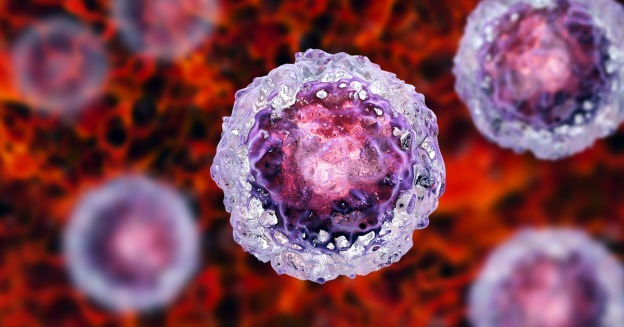
Stem cells are unspecialized cells that can divide through mitosis an unlimited number of times. Each new cell can either stay a stem cell or transform into a specialized cell, such as a nerve or red blood cell, through differentiation. The ability of a stem cell to differentiate into specialized cells depends on its potency. The higher the number of cell types it can differentiate into, the greater its potency. There are three types of potency:
- Totipotent: Totipotent refers to the type of stem cells that can differentiate into any cell. A fertilized egg and the 8 or 16 cells from its first few mitotic divisions are totipotent. Totipotent cells can produce a whole organism. They can also differentiate into extra-embryonic tissues like the amnion and umbilicus.
- Pluripotent: Stem cells that can develop all tissue types but cannot form complete organisms. They are present during early embryo stages and are the origins of all different kinds of tissue that make up an organism.
- Multipotent: Stem cells capable of forming a limited range of cells within a specific tissue. Hematopoietic stem cells are an example of multipotent stem cells found within the bone marrow and can differentiate into various types of blood cells.
Pluripotent stem cells are found in embryos about five days old, while multipotent stem cells are within the bone marrow or fat in adults.
How Can Stem Cells Treat Diseases And Injuries?
Due to pluripotent and totipotent stem cells’ potency to differentiate into all types of tissues and cells, we can exploit their ability to treat many diseases and injuries. Applications of stem cells in treatment include:
- Regenerative medicine utilizes stem cells to cultivate organs and tissues like heart or skin tissue in laboratory settings. These lab-grown organs or tissues can then be transplanted into patients suffering from organ failure or severe injuries, offering new treatment options where conventional methods are limited.
- Neurological Disorders: Stem cells could potentially replace damaged neurons to treat conditions such as Parkinson’s, Alzheimer’s, and paralysis caused by spinal cord injuries, which are currently considered incurable with existing medical treatments.
- Diabetes: stem cells could be used to create insulin-producing cells to treat patients with type 1 diabetes.
- Heart disease: Stem cells can be used to regenerate damaged heart tissue that is presented after a heart attack, which can improve outcomes for many patients post-heart attack.
Ethical Debates Surrounding Stem Cell Research
Even though there are many potential benefits of stem cell research, the topic drives many ethical debates and challenges. The main ethical issues include:
- Source of Embryonic stem cells: Extracting stem cells from embryos typically leads to the embryo being destroyed, which some people believe is morally unjust and equivalent to taking a human life. The perspective is often embedded in religious or philosophical beliefs about when life truly begins.
- Consent for the donation of embryos: This procedure raises additional ethical concerns since donors must be made fully aware of the purpose of both stem cell research and their donation.
- Equity and Access: There are worries that growing inequality in healthcare may result from the fact that breakthroughs in stem cell research and treatments may only be available to the wealthy. A significant ethical concern is making sure that these therapies are accessible to everyone who needs them, regardless of socioeconomic background.
Conclusion
Stem cell research presents the potential to revolutionize how we treat a wide variety of diseases and injuries. Nevertheless, the ethical challenges are extensive and intricate and demand thoughtful regulation. As medical research progresses, society must balance using stem cell research and treatment with respect for moral and ethical principles.

Author – Mohsin Muslim Muhammad






